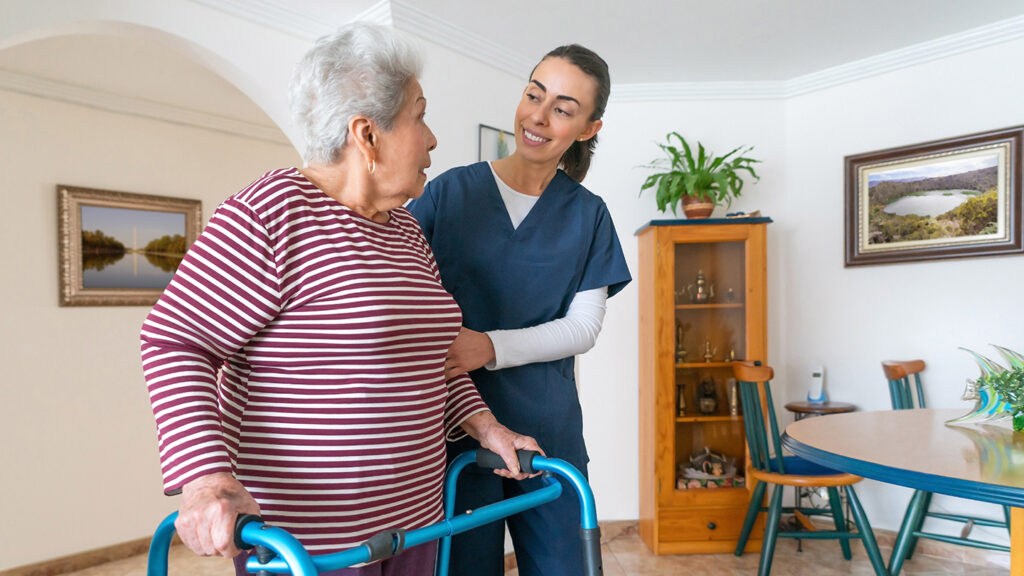

New assistive technologies are transforming older adults’ lives for the better, reducing tremors in people living with Parkinson’s and restoring walking ability in stroke survivors.
But for these tools to be used, both older adults and their caregivers need to better learn how to use them.
The proliferation of assistive tech has created a new need for caregiver training, and virtual reality can help this learning process, a new study shows.
The study focused on the importance of “experiential learning” for undergraduates, which they defined as a hands-on approach, rather than a purely academic understanding of how new technology is used.
Just more than 60 third-year medical students studying gerontology and long-term care subjects agreed to participate in the study. The VR curriculum content on assistive technology was created specially for the research, the study authors noted.
VR paradoxically can engender more realistic training scenarios, the study explained, because it uses a “safe, controllable and repeatable environment” within which users can explore scenarios, the study authors noted.
“VR enables young students to be more active and experience deeper feelings than usual during interactive learning,” the study authors wrote. “In the teaching of medical students, VR use can improve learning quality, knowledge and motivation.”
According to the research, some VR applications asked the students to “see” with moderate macular degeneration impairment, to get a sense of what that is like from a patient’s perspective, and to help a virtual senior avatar use assistive tech within a bathroom setting.
Similar studies have shown that nursing students benefit from VR training to better serve seniors once they graduate; in addition to nursing, VR now is being used in virtually medical fields from surgery to radiology, the study authors said.
The ability to motivate a future cohort of older adult caregivers is crucial at a time when both the senior population is growing and senior living and care providers are struggling to staff their communities and facilities.
The study was published Monday in the journal BMC Medical Education.


